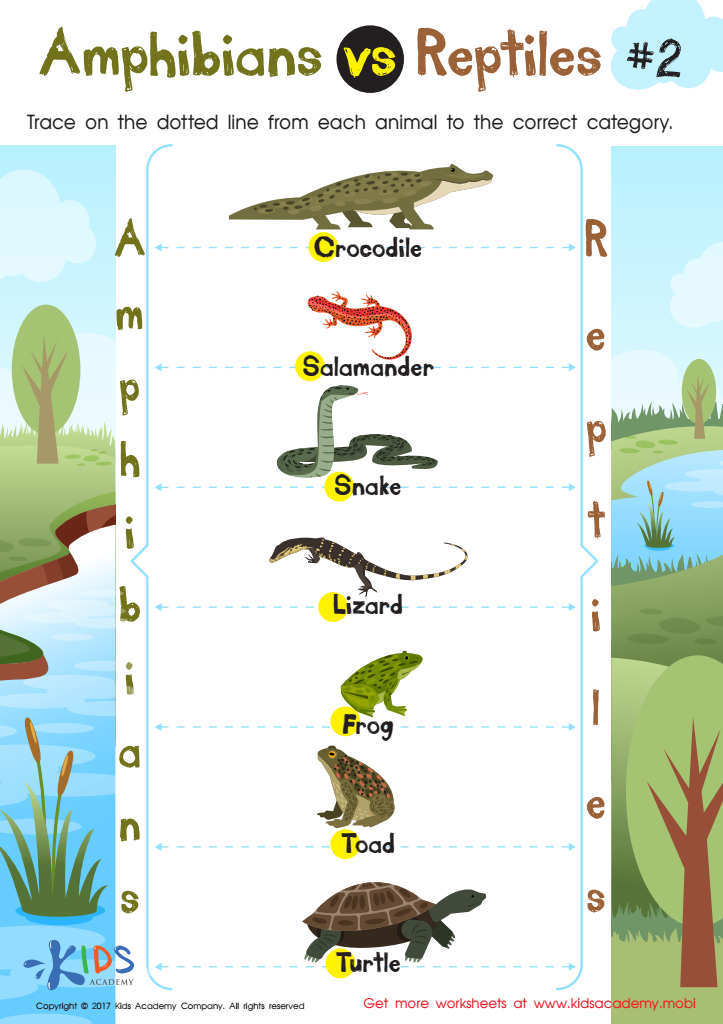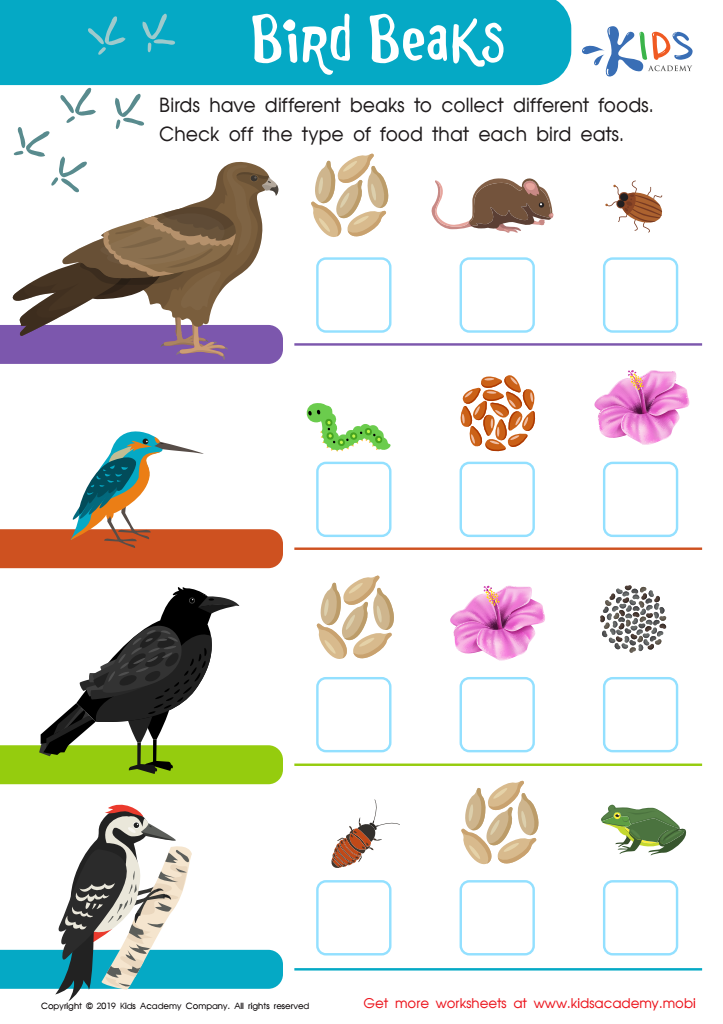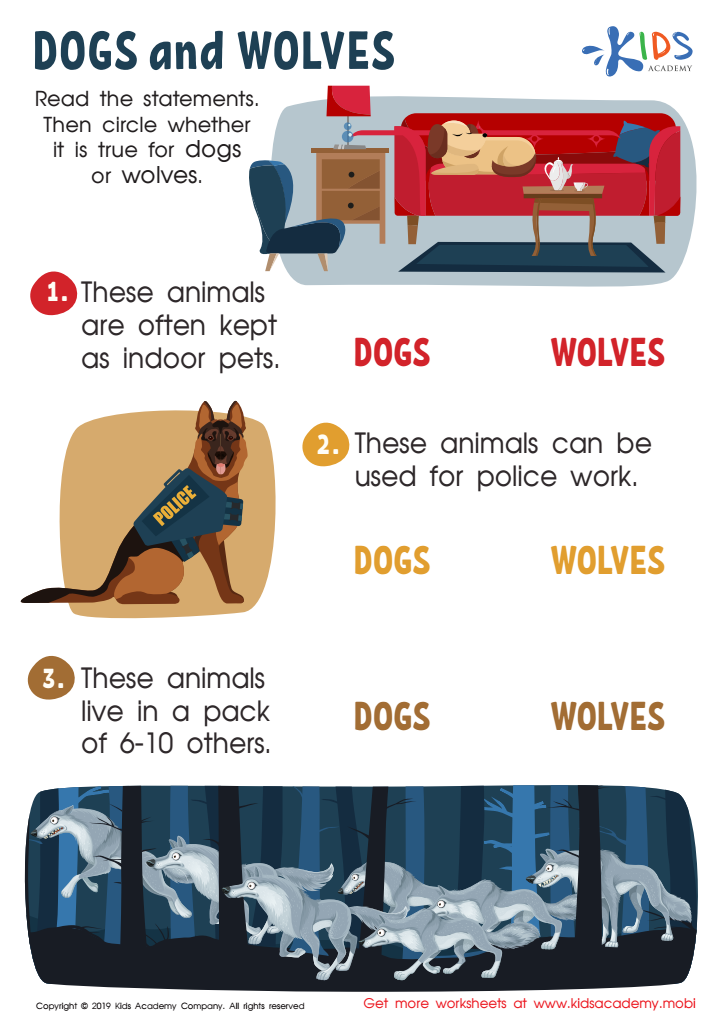Classification skills Normal Worksheets for Ages 7-8
6 filtered results
-
From - To
Enhance your child’s understanding of classification with our engaging Normal Worksheets designed for ages 7-8. These worksheets offer a variety of fun activities that encourage students to group objects and information based on common characteristics, fostering critical thinking and organizational skills. Each worksheet features colorful illustrations and clear instructions to captivate young learners while promoting cognitive development and problem-solving abilities. Designed by educational experts, our classification skills worksheets align with key learning standards, making them perfect for classroom use or at-home practice. Help your child build a strong foundation in classification skills today and inspire a love for learning!


Matter: Assessment 1 Worksheet


Amphibians vs Reptiles Worksheet for 3rd Grade


Bird Beaks Worksheet


Dogs and Wolves Worksheet


Animals and Plants: Assessment 2 Worksheet


Space: Assessment 2 Worksheet
Classification skills are essential development milestones for children aged 7-8 and hold significant value for both parents and teachers. During this stage, children are learning to categorize objects based on their attributes, such as color, shape, size, or function. Fostering classification skills enhances critical thinking and problem-solving abilities, as it hones their analytical skills and promotes logical reasoning.
When children practice classification, they develop a foundational understanding of grouping and sorting, which is vital for their success in subjects like science and mathematics. For example, identifying animals or plants based on their characteristics helps build interest in ecological systems and promotes scientific inquiry.
Moreover, classification skills support language development. As children categorize items, they learn new vocabulary associated with the characteristics they notice, enhancing communication abilities. Parents and teachers should care about these skills because they can directly influence academic performance and cognitive development.
Encouraging classification activities at home or in the classroom, such as sorting games or categorizing toys, not only fosters these skills but also strengthens parent-child and teacher-student relationships through shared learning experiences. Overall, nurturing classification skills promotes holistic development, sets the stage for future learning, and supports children’s growing independence.
 Assign to My Students
Assign to My Students





.jpg)









